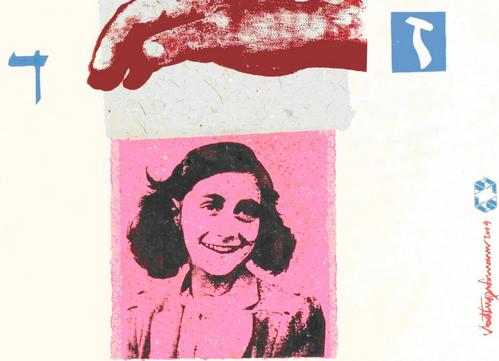Witness: a brief reflection on ethics and aesthetics in Jewish literature
DOI:
https://doi.org/10.17851/1982-3053.1.1.136-144Keywords:
History, Shoah, MemoryAbstract
Whenever the Shoah is raised – such as the diaspora and the Inquisition, but the Holocaust is the most terrible and closer – whether in schools, family and community meetings, we say that we should remember that the facts do not recur, because forgetting leads to repetition of facts. If the disasters have happened, we remind them to avoid their return, and must honour those who were with the statement of what happened. The memory is similar to justice; the Zakhor Act is writing the history of losers, destroyed, annihilated by the March of history. This writing, being responsible for an account – it is written that the story unfolds – assumes the ethical commitment to remember to prevent new disasters.
Downloads
References
AGAMBEN, Giorgio. The Man without content. Palo Alto: Stanford UP, 1999.
BADIOU, Alain. Pequeno manual de inestética. São Paulo: Estação Liberdade, 2002.
BINES, Rosana Kohl. A prosa desbocada do ilustre escritor estrangeiro. In: VIEIRA, Nelson & GRIN, Mônica (Org.). Experiência cultural judaica no Brasil: recepção, inclusão e ambivalência. Rio de Janeiro: Topbooks, 2004. p. 197-212.
DELEUZE, Gilles e GUATTARI, Félix. O que é filosofia. São Paulo: Ed. 34, 1997.
HARTMAN, Geoffrey. Holocausto, testemunho, arte e trauma. In: SELIGMANN-SILVA, Márcio. &
NETROVISKI, Arthur (org.). Catástrofe e representação. São Paulo: Escuta, 2000. p. 207-235.
HOBSBAWN, Eric. Era dos extremos. São Paulo: Cia. das Letras, 1995.
KIRSCHBAUM, Saul. A volta do errante Samuel Rawet. Revista 18. Ano III. n° 9. São Paulo: Centro da Cultura Judaica, 2004. p. 52-4.
LEVI, Primo. Os afogados e os sobreviventes. Rio de Janeiro: Paz e Terra, 1990.
LEVI, Primo. Se não agora, quando? São Paulo: Cia. Das Letras, 1999.
LÖWY, Michael. Redenção e utopia: o judaísmo libertário na Europa Central. São Paulo: Companhia das Letras, 1989.
LUKÁCS, Georg. A teoria do romance. São Paulo: Duas Cidades, Ed. 34, 2000.
NIETZSCHE, F. Assim falou Zaratustra. Rio de Janeiro: Civilização Brasileira, 2005.
RANCIERE, Jacques. A partilha do sensível. São Paulo: Ed. 34, 2005.
RANCIERE, Jacques. Heidegger, filósofo judeu? In: Folha de São Paulo, Caderno Mais, p.3, 4 de setembro de 2005.
RANCIERE, Jacques. Políticas da escrita. São Paulo: Ed. 34, 1995.
RAWET, Samuel. Contos e novelas reunidos. Org. André Seffrin. Rio de Janeiro: Civilização Brasileira, 2004.
SELIGMANN-SILVA, Márcio. A história como trauma. In: ______. & NETROVISKI, Arthur (Org.). Catástrofe e representação. São Paulo: Escuta, 2000. p. 73-97
SELIGMANN-SILVA, Márcio. Zeugnis e Testimonio: sobre a diferença e a intraduzibilidade entre dois conceitos. In: VIEIRA, Nelson & GRIN, Mônica (Org.). Experiência cultural judaica no Brasil: recepção, inclusão e ambivalência. Rio de Janeiro: Topbooks, 2004. p. 181-196.
VOLPI, Franco. O Niilismo. São Paulo: Ed. Loyola, 1999.
YERUSHALMI, Yosef Hayim. Zakhor. Rio de Janeiro: Imago, 1992.
Downloads
Published
How to Cite
Issue
Section
License
Os direitos autorais pertencem exclusivamente aos autores. Os direitos de licenciamento utilizados pelo periódico é a licença Creative Commons Attribution 4.0 (CC BY 4.0): são permitidos o compartilhamento (cópia e distribuição do material em qualquer meio ou formato) e adaptação (remix, transformação e criação de material a partir do conteúdo assim licenciado para quaisquer fins, inclusive comerciais.






